To the untrained eye, you might be forgiven for wondering how Zafar Ali makes any sales at Buckie Furniture, Flooring and Mobility.
It’s impossible to have a conversation with him without being derailed by some kind of joke or story only slightly relevant to what you’re discussing.
But what might be mistaken for just banter is how the businessman and his late father Nemet before him have built a family firm that has survived 42 years.
With generations of repeat customers phoning up and popping through the door, for a purchase as well as a catch-up, Buckie Furniture has an enviable local reputation.
The Press and Journal stopped by for a coffee to speak to Zafar about how the business has thrived for so long, including;
- What he learned from his father who arrived in Moray from Pakistan at just 15 and sold clothes door-to-door.
- Why he believes local suppliers can compete with national chains in rural areas.
- How putting a smile on the face of customers is never bad for business.
- Where Buckie Furniture has expanded with new lines to fill gaps in the local market.
- And how the coastal town may have changed over the decades, but still remains buoyant.
Business education from father who arrived from Pakistan with only 10 shillings
Zafar was born and raised in Buckie after his father Nemet emigrated to Moray from Pakistan in the 1950s when he was just 15.
Arriving in Lossiemouth with just 10 shillings in his pocket, he made his living selling clothes door-to-door.
In the early days he brought the latest fashions from Glasgow and London, including the first hot pants, to the streets and dancefloors of Buckie.
It wasn’t long before he opened Elgin Drapery, closely followed by the Naseeb Indian Restaurant in Elgin, Nemet Tandoori in Buckie and the Ballerina Ballroom in Nairn.
An unexpected turn in a business deal led to the family swapping selling clothes in Elgin for furniture in Buckie in 1980.
After starting in the West Church Street business taking phone calls as a schoolboy while his father visited customers, Zafar studied accountancy in Aberdeen.
But he credits the upbringing his father, including from those early days going door-to-door, for helping him run the business today.
Zafar said: “A customer is a lifeline. I think people forget that nowadays, especially when they’re selling.
“Customer is king, it’s as simple as that. It’s not just about that one sale, it’s repetitive sales.
“I remember one time my father introduced me to four generations of a family that were all his customers. I was just thinking ‘wow’, that’s incredible.”
Why national chains don’t understand Buckie and Elgin
It’s coming into the season when furniture commercials will never be off the television.
Massive budgets spent on advertising campaigns encouraging you to buy a sofa in time for Christmas.
While Zafar believes the nationals may make an impact in the big cities, he believes they struggle to make the same impact in rural areas like Moray.
He said: “I like to say ‘big city, big price’.
“I think there are pockets of the country where the nationals struggle because they need to bring in big, big money.
“Obviously they’ll run Inverness and Aberdeen successfully, but the areas in between can be a bit of a problem for them.
“Most of our customers are between Cullen and Nairn, but it won’t just be here. I’m sure they have the same sorts of problems in other rural parts of Scotland as well as in Ireland and Wales.
“In these places you tend to see locally-owned furniture stores because they come from a local need.
“There’s a huge difference in prices as well when you look national but shop local.
“We had a sofa at £499, two-seater fabric. I went into a store in Inverness and saw the same sofa for £2,200.
“Same colour, same everything, and they were charging delivery on top of that too.
“That’s what happens in furniture with the nationals. People here can’t afford to pay big city prices because there aren’t the big city jobs here.
“Dad always said he wanted us to be an affordable store. Not a high-class one, he was always happy in the middle of the market.”
Putting a smile on Buckie Furniture customers’ faces
After more than 40 years selling furniture from Buckie, Zafar has built a personal relationship with many of his customers.
He knows what they need, so he knows what to offer them.
Striking up a rapport for customers with jokes and a laugh comes easy to him now, but he admits it’s something he found difficult in the early days.
How important is that personal touch when it comes to business though?
Zafar said: “If you can enjoy yourself, have a good laugh and make somebody else smile then it makes a big difference.
“I went into a national furniture chain once and I only had my knee in the door when two people came up to me saying ‘Can I help you?’
“We don’t have hard sales here, we never have done.
“What you see in the shop is what we think will sell. There will always be that person that wants something a bit different though.
“People can always ask. Just give us a couple of minutes. Let’s have a look. We can always take their contact details and get back to them when we find what they want.
“It’s genuine customer service. It’s not rocket science, although some people can try and make it into that.”
How Buckie Furniture has expanded after spotting gap in mobility market
For the most part, Buckie Furniture still sells what it has always done with blinds, flooring and beds in addition to sofas and chairs.
In recent years the firm has expanded into mobility aids with scooters and chairlifts.
The move came when Zafar’s mother started to struggle and they looked for help from elsewhere.
He said: “There were a couple of shops in Elgin but they closed. There was nowhere else really, to be honest.
“So we spotted there was a gap there, we knew there was a demand and we moved into that.”
Answering questions from customers about mobility scooters and chairlifts is very different from sofas and tables.
The staff have gone through training with suppliers and occupational therapists to ensure they know what they’re talking about.
Zafar said: “It’s specialist knowledge. We also do things one-to-one, you learn about the person, what their needs are.
“Today’s modern generation thinks ‘Get a website, no need for a shop.’
“You can’t have that one-to-one connection through a website though.
“We don’t have the same space the big chains have, but we can certainly supply the same thing, often to a higher standard.”
‘Buckie may have changed, but consumer habits haven’t’
Buckie has changed dramatically since Zafar’s father started business in the town in the 1980s.
At the time the fishing industry still dominated the coastal town, although a small number of boats remain.
Despite the changes, Zafar insists Buckie is still a buoyant town.
He said: “Buckie is an ex-fishing town. Most of that population has gone to the oil rigs now.
“There’s still an awful lot of expertise in Buckie though, in renewables now too, which you need a harbour for as well.
“There’s been a huge change with the banks. We used to have four, now we have only one. We’ve also had Tesco come to Buckie, so there’s no small grocers anymore.
“Covid came along and everything collapsed completely and we’re still in that recovery, I would say.
“You’ve got to be thankful for the shops that are still here and open. I think if you compare it to other places, Buckie is a lot more buoyant, even if it’s a bit smaller.”
Read more from Buckie
- Luxury cruise ship operator reveals why it has added Buckie to its destinations for high-end voyages
- Takeaways, offices, homes and for sale signs: How 18 bank closures in Buckie, Forres, Keith and rest of Moray have changed high streets
- Family-run Buckie firm Eat Mair Fish still reeling in customers after 50 years
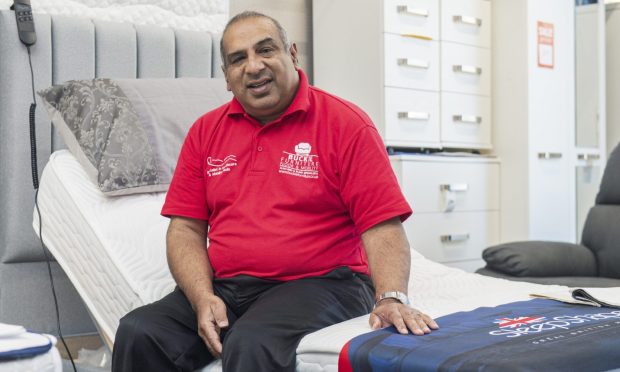
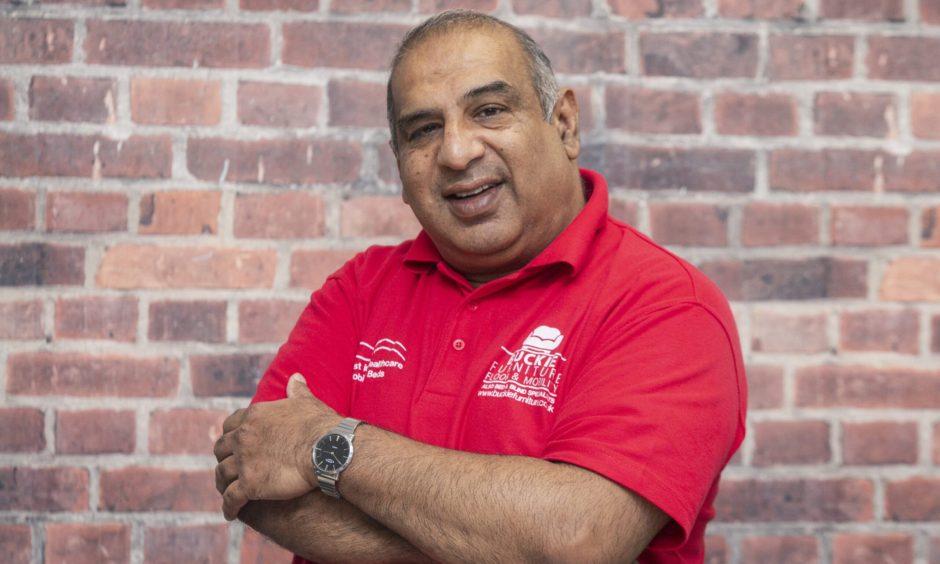
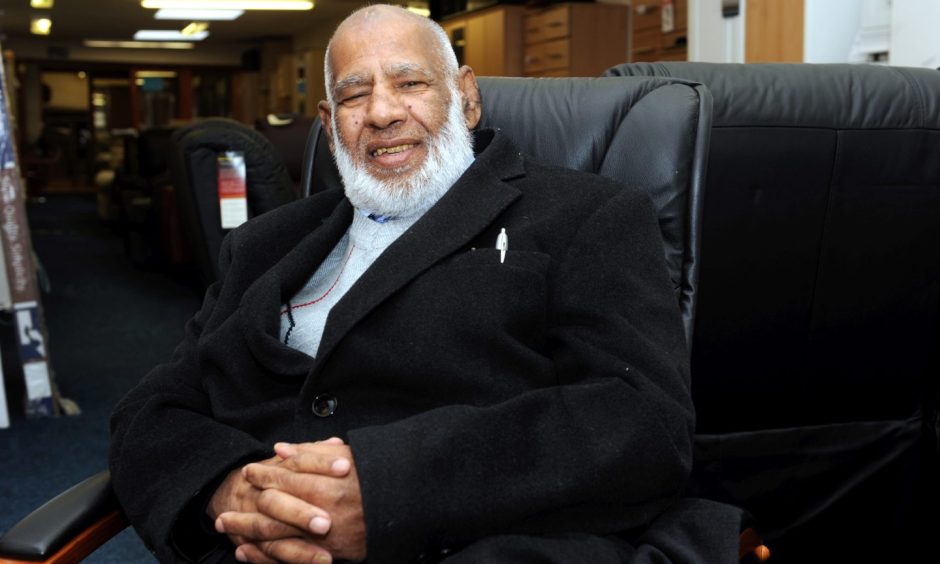
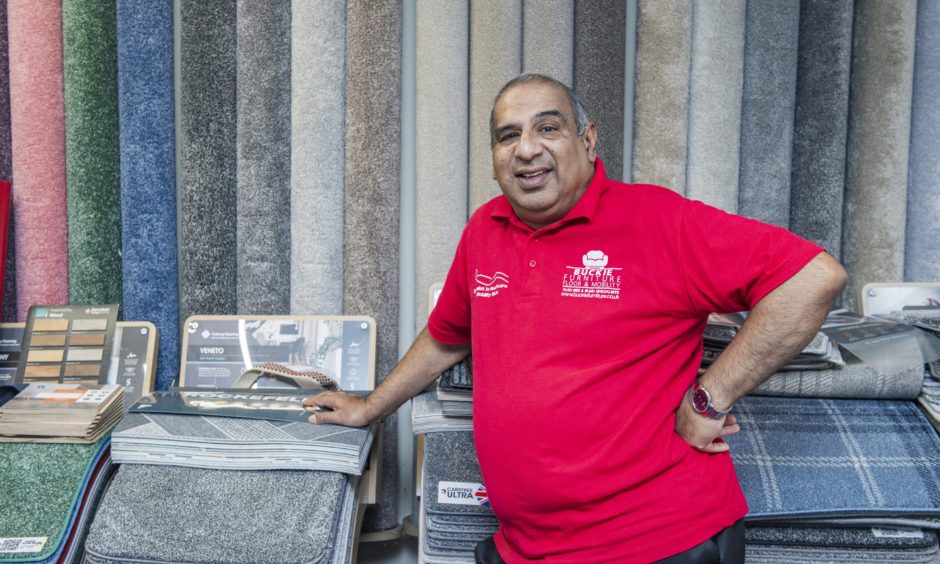
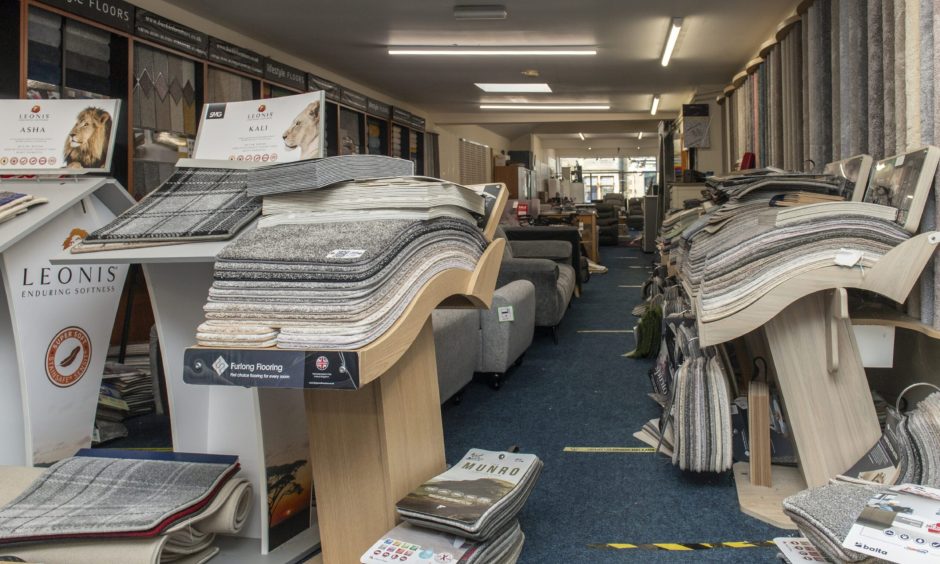
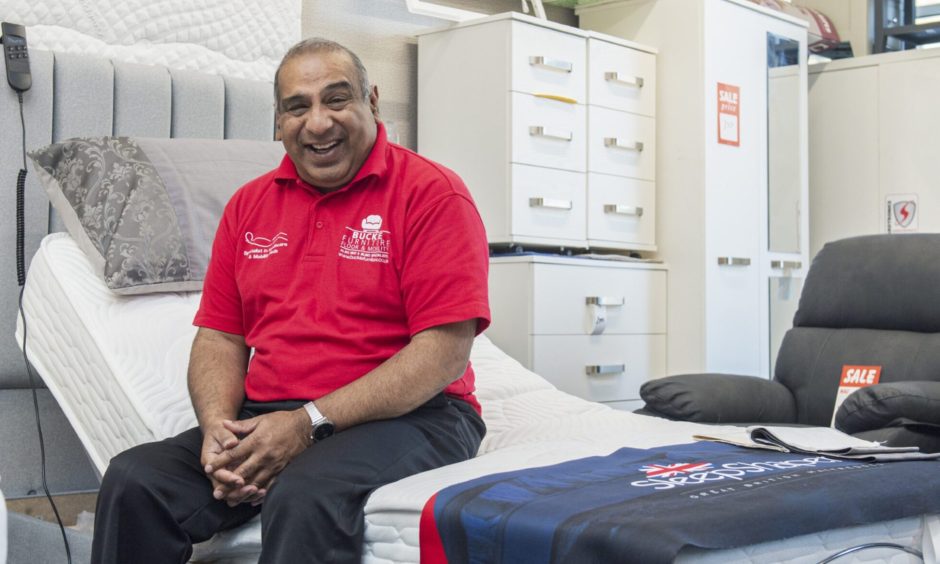
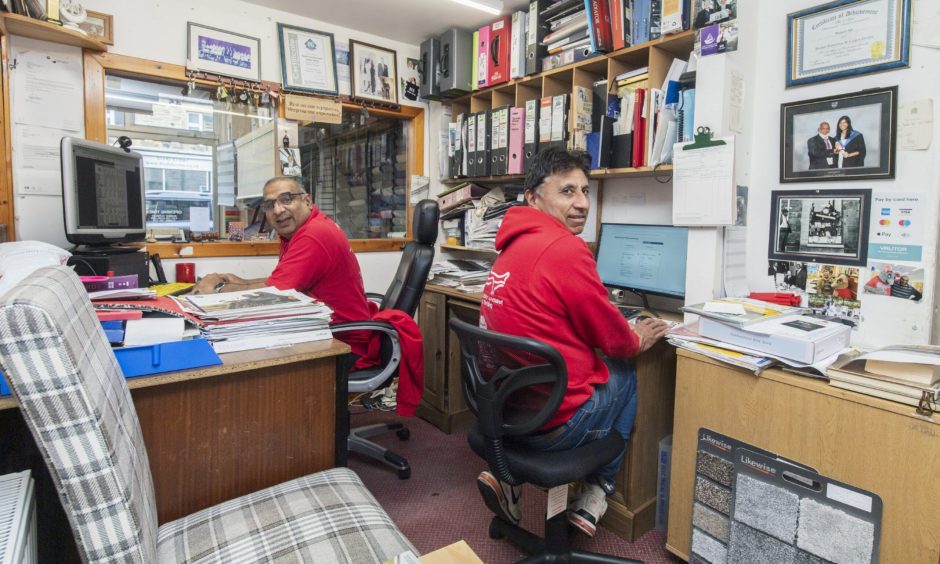
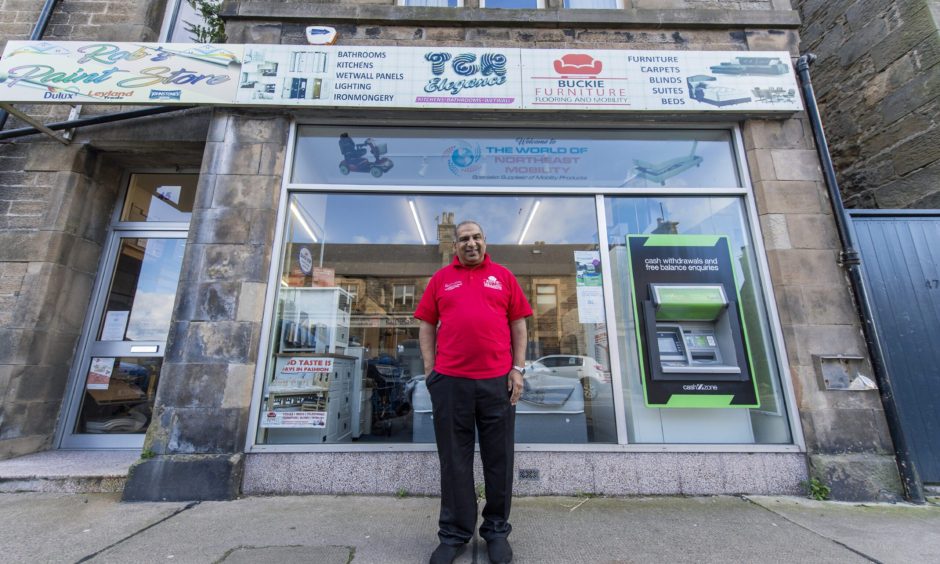
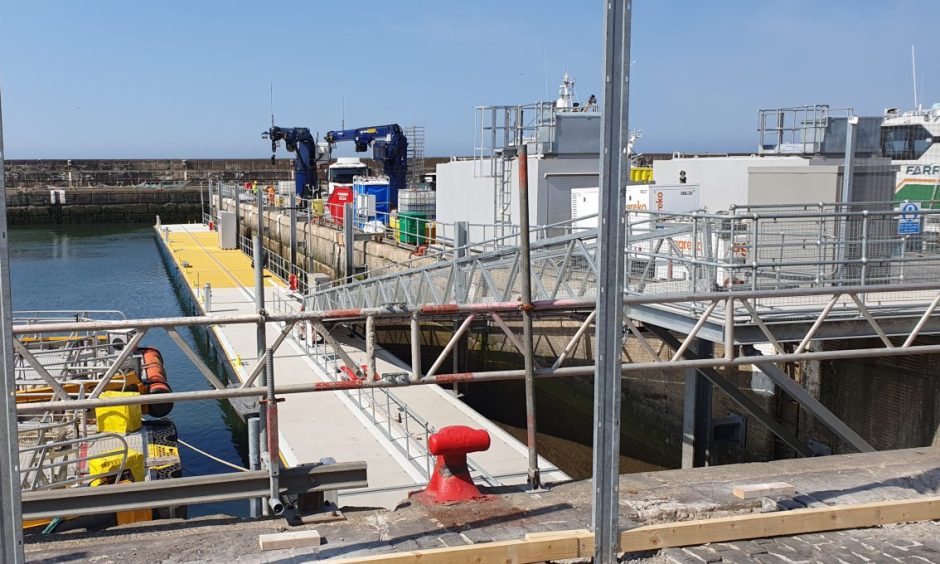
Conversation